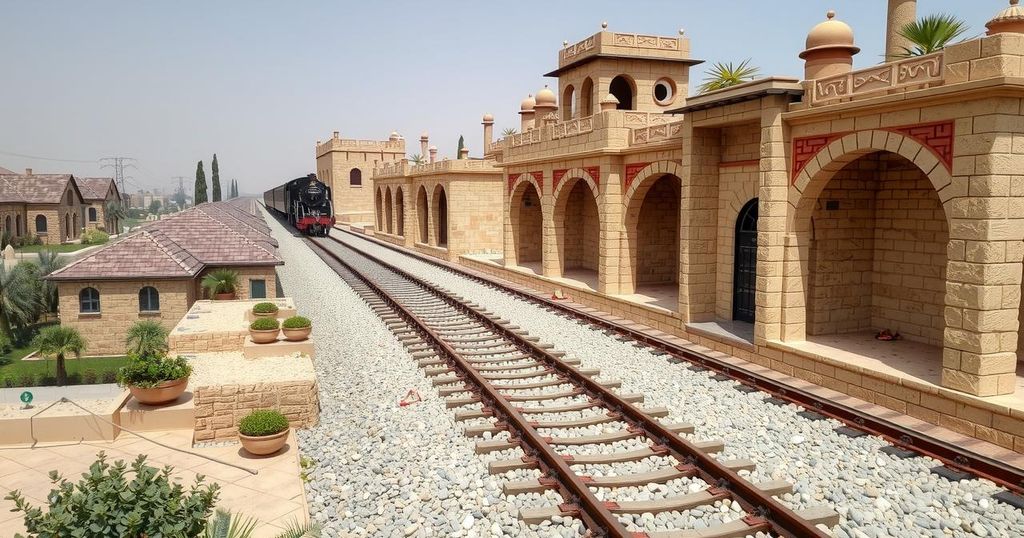Turkey to Restore Historic Hejaz Railway Sections in Syria

Turkey plans to restore parts of the historic Hejaz Railway in Syria to reconnect Turkish rail lines to Damascus. Transportation Minister Abdulkadir Uraloglu stated that the efforts are part of broader reconstruction initiatives in Syria post-civil war, facing challenges due to previous damages. The Hejaz Railway, originally constructed in the early 20th century, has significant historical importance and aims to facilitate better connectivity in the region.
Turkey has announced plans to restore sections of the historic Hejaz Railway in Syria, aiming to reestablish rail connections from Turkey to Damascus. Turkish Transportation Minister Abdulkadir Uraloglu made this declaration to journalists, highlighting that the initiative is part of broader efforts to assist in the reconstruction of Syria following its prolonged civil conflict. Uraloglu indicated that an assessment of the railway’s current condition will proceed as a preliminary step towards reactivating service.
The Hejaz Railway was initially envisioned by Sultan Abdulhamid II in the early 20th century, aiming to connect Istanbul to the Islamic holy city of Mecca. Although the project faced many obstacles, such as ongoing sabotage during the Arab Revolt and interruptions caused by World War One, it was partially completed, reaching Medina but failing to reach its intended destination. Despite its historical significance and ambitious goals, the railway’s operational status has been largely dormant for decades. Uraloglu expressed concerns regarding potential challenges in the restoration process due to previous infrastructural damages and thefts of railway materials, particularly in nearby Iraq.
The Hejaz Railway was constructed between 1900 and 1908 with funding primarily from various Muslim donors, illustrating the unity and determination within the Muslim community to facilitate easier pilgrimage to Mecca. Its completion marked a significant achievement for the Ottoman Empire; however, the railway became a target for resistance movements during World War One, reflecting the geopolitical tensions of the era. Post-war developments led to significant declines in its operational capabilities, ultimately stopping short of its goal of connecting to Mecca. Currently, the project to revive the railway represents not only a restoration of a historical transport link but also a symbolic step towards reestablishing connectivity and cooperation in the region.
The restoration of the Hejaz Railway by Turkey signifies a commitment to enhancing regional infrastructure and fostering relationships with its neighbors. Amidst Syria’s ongoing recovery from conflict, this initiative is pivotal for both economic development and revitalization of historical connections. By addressing existing conditions and proposing solutions, Turkey’s proactive measures may contribute to stability and growth in the region, underscoring the enduring legacy of this historic railway.
Original Source: www.middleeasteye.net






